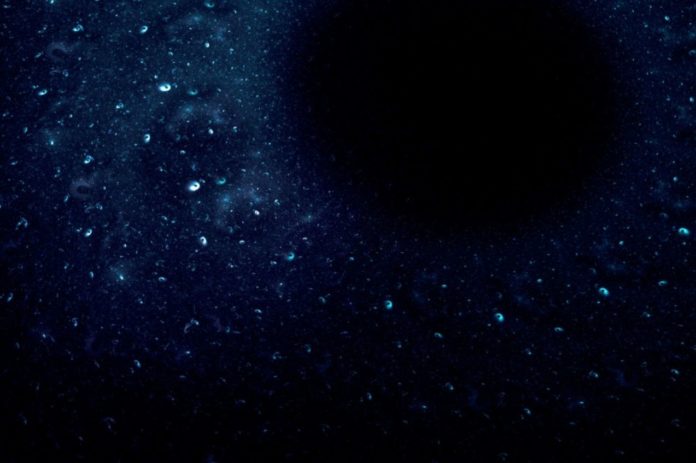“Any light that goes into that black hole doesn’t come out, so we shouldn’t be able to see anything that’s behind the black hole.”
However, it is another special feature of the black hole that allows this observation possible.
“The reason we can see that is because that black hole is warping space, bending light and twisting magnetic fields around itself,” explained astrophysicist Dan Wilkins from Stanford University.
- Does This Mean We Stopped Being Animal and Started Being Human Due to ‘Copy Paste’ Errors?
- The One Lifestyle Choice That Could Reduce Your Heart Disease Risk By More Than 22%
- Aging: This Is What Happens Inside Your Body Right After Exercise
- Immune-Boosting Drink that Mimics Fasting to Reduce Fat – Scientists ‘Were Surprised’ By New Findings
- Gun Violence in America: What They Don’t Talk About at the Debate
The unusual finding, described in an article published in Nature on July 28, is the first direct detection of light coming from behind a black hole, a situation predicted by Einstein’s theory of general relativity but never verified until now.
“Fifty years ago, when astrophysicists starting speculating about how the magnetic field might behave close to a black hole, they had no idea that one day we might have the techniques to observe this directly and see Einstein’s general theory of relativity in action,” says Roger Blandford, a co-author of the paper.
How to look into a black hole
This study was originally motivated by a more enigmatic characteristic, called a corona, of some black holes. Stuff falls into a supermassive black hole and creates a corona surrounding the black hole, which gives the brightest continuous sources of light in the cosmos. It is possible to examine this – X-ray light – to map and describe the black hole.
The idea of what a corona is begins with gas slipping into the black hole being overheated to millions of degrees. Electrons split from atoms at this temperature, producing a magnetic plasma. Having hit the mighty spin of the black hole, the magnetic field arcs around the black hole are so strong, that it finally breaks apart completely — a scenario which is similar to what happened to our own Sun and that’s how it was named ‘corona.’
“This magnetic field getting tied up and then snapping close to the black hole heats everything around it and produces these high energy electrons that then go on to produce the X-rays,” said Wilkins.
Wilkins examined the origin of the flares more closely and he noticed a number of small flashes. These are the identical X-ray flares, but they represent a first look from the rear of the disc – on the far side of a dark hole.
“I’ve been building theoretical predictions of how these echoes appear to us for a few years,” said Wilkins.
“I’d already seen them in the theory I’ve been developing, so once I saw them in the telescope observations, I could figure out the connection.”
- Does This Mean We Stopped Being Animal and Started Being Human Due to ‘Copy Paste’ Errors?
- The One Lifestyle Choice That Could Reduce Your Heart Disease Risk By More Than 22%
- Aging: This Is What Happens Inside Your Body Right After Exercise
- Immune-Boosting Drink that Mimics Fasting to Reduce Fat – Scientists ‘Were Surprised’ By New Findings
- Gun Violence in America: What They Don’t Talk About at the Debate
“It’s got a much bigger mirror than we’ve ever had on an X-ray telescope and it’s going to let us get higher resolution looks in much shorter observation times,” said Wilkins.
“So, the picture we are starting to get from the data at the moment is going to become much clearer with these new observatories.”
Image Credit: Getty
